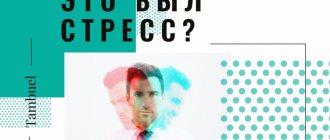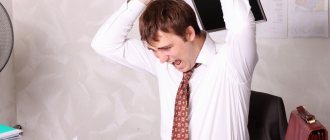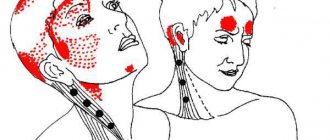.
Stress is the body’s defensive reaction to a difficult, uncomfortable situation. The condition is accompanied by internal tension, increased anxiety and a feeling of fear.
Relieve stress at home
They get rid of stress symptoms through psychoanalysis and techniques that patients perform at home, on the way to work or at the workplace. Folk recipes will help relieve nervous tension: safe tinctures and natural-based products do not cause side effects.
Stress and psycho-emotional tension
Stress is a state consisting of a complex of negative internal processes. Tension is individual moments that arise due to stress factors and entail serious consequences for the further development of a person.
These concepts indicate the psychological state of a person. Psycho-emotional stress causes physical and mental stress, characterized by a partial loss of control: in this state, a person overcomes difficulties without being sure of the result of his actions. Stress is the body’s reaction to factors that, for a number of reasons, the human mind perceives as overwhelming difficulties that cannot be overcome.
What is the ability to relax
Often people forget how important it is to give yourself rest. The ability to relax physically and emotionally is a useful function of the body, which can be forgotten over time. Especially if you have been under constant stress and conflict for a long time.
Internal problems cannot find a way out if you do not know how to relieve tension without resorting to the help of a psychologist. Nevertheless, there are such ways, and there are many of them. It’s enough to find a suitable option for yourself and remember to use it from time to time.
The ability to abstract yourself from unpleasant surroundings and thoughts is the ability to relax. You can do this almost anywhere where you can retire for a few minutes. Failures, problems and other negativity will gradually recede from you.
Types of nervous tension
Nervous excitation is characterized by a load on the central nervous system. In a state of stress, a person does not relax: at night he is tormented by nightmares, and in the morning he feels tired and apathetic. The nervous system does not recover. Mental stress changes the behavior of an individual, making a person aggressive and isolated from others. For convenience, there are two types of extreme mental stress:
- The inhibitory type is expressed in a person’s low adaptation to new conditions, when he cannot adapt to the assigned tasks at work and the requirements in the family. His reactions are inhibited and inadequate in relation to the situation.
- Excessive forms of mental stress (excitable type) are expressed in a change in the behavior of the individual: he withdraws from his usual habitat, becomes withdrawn and uncommunicative. Mental overstrain leads to rapid mood swings. This type of tension is characterized by increased aggression of a person who has experienced severe stress.
- Excessive or prohibitive forms of mental stress arise due to hypermobilization of the body (a person experiences an emotional breakdown).
- Exorbitant forms disrupt coordination of movement. Due to tension, confusion appears and concentration decreases.
Stress, tension, aggression
Symptoms of psycho-emotional problems
Nervous fatigue is reflected in a person’s behavior. His attitude to life, behavior and society changes. Symptoms of nervous tension:
- lethargy;
- apathy;
- inhibition of reactions;
- increased anxiety;
- depression;
- manic behavior (a person is focused on one task).
The symptoms and treatment of nervous tension are similar to stress relief methods. The primary goal is to reduce the level of anxiety and combat the main cause of this condition. Without medications, tension decreases gradually through an increase in a person’s activity and correction of his behavior.
Every symptom of nervous tension is accompanied by exhaustion of the human mind and body. Nutrition is disrupted, muscle tone decreases - the personality literally weakens before our eyes. A sign of problems in the body that arise against the background of mental stress: arrhythmia, hypertension, infectious diseases (malfunctions of the immune system), disturbances in the functioning of the intestines (constipation, diarrhea, increased flatulence).
Body strengthening
To restore your body and mind, you need to follow simple tips:
- Physical activity has a positive effect on the body. Constant movement, sports and other physical activity have a positive effect on the condition of the body, and, consequently, the nervous system improves;
- control your diet. The body must receive the required amount of vitamins, minerals and other beneficial substances found in food products every day;
- rejection of bad habits. Despite the fact that many are accustomed to starting the morning with coffee and a cigarette, this habit should be forgotten. It’s better to completely give up all bad habits, such as alcohol, cigarettes, stimulants. The excitement that occurs due to receiving a dose of nicotine is quickly replaced by an inhibitory reaction;
- sauna and bathhouse. Such methods help cleanse the body and soul. Elevated temperatures and hot steam together help cope with many diseases, the body and nerves relax;
- harden. Water has a positive effect on the nervous system. If you harden yourself, you can strengthen your immune system. It invigorates and strengthens the body. There is a more extreme way to harden yourself - winter swimming. It may seem strange, but the health and calmness of walruses can only be envied. If you go down into an ice hole, your body will be very grateful;
- drink as much water as possible. Many people know the 8 glasses method. This is how much water a person should drink per day. This cleanses the body well, removing toxic substances;
- massage. A great way to get rid of many ailments and relieve stress. The body gradually loses its flexibility, the joints become less mobile. A good massage will speed up blood circulation and trigger metabolic processes.
How to relieve tension
Methods for relieving psychological stress directly depend on the condition of the affected person. Anti-anxiety pills and psychotropic medications are prescribed by a doctor in cases where exercise and regular techniques do not produce positive results. Psychocorrection is a safe technique for adults and children.
Psychological counseling and psychocorrection
The state of mental tension consists of physical reactions that can be learned to control. The method for home use is based on the correction of the body's reactions. Through breathing exercises a person learns to control fear, and exercises against tension help to concentrate.
Proper relaxation technique
The easiest way to relieve tension is to instruct the body to change its external reaction. To relieve stress and nervous tension at home after a working day, you should take a walk in the fresh air.
The benefits of walking
Walking alone with your thoughts allows you to understand the reasons for the current situation and take your mind off the problem. Changing the environment helps you quickly calm down, relax your muscles and reduce overexcitement. It is better to take a walk before bed to relieve mental stress and prevent insomnia.
Exercise to relieve tension
The mental stress associated with overcoming imperfection is expressed in the behavior of the individual. She is tense and complex: her injuries are reflected in a person’s appearance and demeanor. He is stiff, stooped and clumsy. Gymnastics are used to combat internal tensions.
Relieve tension and stress:
- starting position – standing against the wall with your back extended;
- feet shoulder-width apart, arms extended forward (palms pointing down);
- as you exhale, the body slowly pulls upward; as you inhale, the weight of the body is redistributed over the entire foot.
The number of repetitions of the exercise depends on the physical fitness of the person. Psycho-emotional stress due to sudden changes at work or in your personal life is accompanied by panic attacks - this exercise will ease anxiety, and mental stress will disappear within 5-10 minutes.
Alternate body lifts with breath holds. A person needs to stretch out on his toes and tighten his abdominal muscles. As you exhale, the body relaxes and returns to its original position.
Why am I tense?
The reasons why you experience constant tension and fatigue can be very diverse. The most common of them are:
- overload at work;
- conflict situations on the street and at home;
- financial difficulties and unforeseen situations;
- stress from unpleasant news;
- nervous tension due to constant noise;
- frequent negative thoughts.
As a result, a lot of negative energy accumulates inside you. It puts pressure not only psychologically. Instinctively, your body tries to protect itself from the influence of negativity. As a result, you get tight muscles, poor sleep and frequent pain in different parts of the body.
Residents of megacities are more often exposed to stressful situations. This is due to the increased speed of life, which is why it is so important to be able to relax quickly without wasting precious time. Otherwise, your body will not be able to cope even with everyday activities.
Breathing exercises
To quickly relieve stress or nervous tension, you need to calm your breathing. As a reaction to fear and stress, a person experiences shortness of breath, suffocation, chest pain and uneven breathing. With the help of simple breathing exercises, psychological stress is reduced, and the person returns to a normal state. Breathing exercises are suitable for both men, women and children.
Breathing exercises to relieve tension are easy to remember:
- Starting position – sitting or standing. The person settles into a comfortable position with a straight, elongated back. It is important that the chest is smooth, straightened, and nothing interferes with calm breathing.
- Closing your eyes helps you distance yourself from what is happening around you. The exercise is carried out at home, at work or on public transport.
- The first breath is slow and deep. While inhaling, a person counts to himself to five. The air passes through the lungs, the stomach gradually rounds.
- Exhale slowly. You should exhale gradually, tensing your abdominal muscles, then releasing your lungs. The complex of inhalations and exhalations is like a wave that first fills a person and then releases him.
- You should inhale through your nose and exhale through your mouth.
- Between inhalation and exhalation, hold your breath for a few seconds.
Breathing exercises to relieve stress
A simple pattern of “inhale for 5 counts – hold your breath for 5 seconds – exhale for 5 counts” will help you relax your body and free your mind from anxious thoughts. Repeating the exercise helps to distract attention from the stress factor. Breathing exercises are performed for 10 minutes. The exercise is repeated 2-3 times a day.
Restoring the correct breathing rhythm normalizes a person’s mental state. Before going to bed, this exercise will help you fall asleep quickly and get rid of anxious thoughts.
Equipment for extreme situations
An effective method of relieving psychological stress in conflict situations is emergency measures. They use quick techniques to normalize the state in a stressful situation and to prevent a nervous breakdown. The “Boat” exercise helps a lot with a panic attack.
Starting position – sitting or standing. It is necessary to straighten your back and fold your arms in the shape of a boat (palms connected at chest level, elbows bent). In order to relieve stress and nervous tension, you should monitor your breathing for 3-4 minutes. At the fifth minute its frequency decreases. Calm, measured inhalations alternate with long exhalations. During inhalation, the lips are closed (inhale through the nose). After a few minutes, the body will relax and the mind will calm down.
Take up a hobby
Nothing distracts you from despondency like doing something you love. It’s enough to start, and after a while you’ll forget that you were sad. If you get bored with your favorite activities, look for something new. We will even tell you which hobbies are most often chosen by modern boys and girls.
Do you like to draw? Get an anti-stress coloring book
Calming herbs and aromatherapy
You can relieve stress in a relaxed home environment. Soothing tea and essential oils, incense and scented candles will create all the conditions for relaxation of the body.
Herbal infusions that are stored all year round help relieve internal tension. The following herbs are selected as a natural sedative: St. John's wort, oregano, chamomile and motherwort. Dilute the herbal taste of tea with honey, cinnamon or syrup. The composition of the collection is selected individually.
Herbal tea with honey
Getting rid of nervous tension at home is easy if you take baths with pine needles and essential oils once a week. Use 10 drops of oils (orange, cedar and lemon tree) added to a warm bath. This way you can relieve fatigue. After a bath, it is recommended to drink freshly brewed chamomile tea or a decoction with medicinal plants (lemon balm and mint).
The beneficial properties of oils are used to improve blood circulation, in the fight against colds and stress. Incense helps to relax: with the help of an aroma lamp and essential oils you can calm the nervous system. With the help of lavender, geranium and frankincense oil, a woman can relieve severe pain during menstruation (hormonal imbalance causes increased nervousness and psycho-emotional stress).
Clear your head of unnecessary thoughts
Stop thinking about failures, they are in the past, which means they are not worth your nerves. Focus on the future, plan and implement. Throw away the fear of defeat! The ability to think positively is a good medicine in the fight against stress.
Hold your tail with a gun! And try to make friends with stress. With the right approach, you can really benefit from this condition
Prolonged stress
The result of increased excitability (symptoms: irritability, apathy, confusion) is prolonged stress. A person has a headache, tremors in the limbs, joint pain, body aches - psycho-emotional problems lead to pathologies.
The attending physician prescribes medications that relieve physical symptoms. Psychoanalysis and work on lifestyle helps the individual get rid of stress and its consequences. The danger of a prolonged stressful state lies in the disruption of the central nervous system.
Mental disorders manifest themselves in people who have not struggled with constant emotional stress.
How do you know when your eyes need rest?
Redness of the white of the eye, a burning sensation or the presence of a foreign body, swelling of the eyelids, heaviness and tension in the eyes - all this indicates overwork of the visual apparatus. When the eyes become very tired, functional disorders may even appear, such as decreased visual acuity, impaired color perception, the appearance of a veil before the eyes, and double vision. But there are many reasons that lead to the appearance of tension in the eyes:
- long work at the computer;
- frequent TV watching;
- passion for gadgets (smartphone, tablet, etc.);
- reading books on the bus or subway;
- incorrectly selected optics for vision correction;
- vegetative-vascular dystonia;
- increased pressure (intraocular, intracranial, arterial);
- ophthalmological diseases of an inflammatory, infectious nature;
- refractive errors (astigmatism, myopia, presbyopia).
Discomfort may occur even if you stay in a room with dry air for a long time, especially if air conditioning is running inside or the heating is turned on.
The right rhythm of life
You can avoid taking stress-inducing drugs if you plan your daily routine, create the right diet and take care of the health of your body. Remedies for stress cause drowsiness and affect human behavior, and folk remedies for stress are not dangerous. Useful habits developed while working on thinking and behavior will prevent stress in the future.
Sports activities
The following will help relieve internal tension:
- playing sports;
- new hobbies;
- trips out of town;
- new acquaintances and meetings;
- timely rest.
Working on your own thinking saves you from stress - the attitudes by which a person lives create his reactions. Stress resistance is developed through self-education and self-knowledge. If a person knows the cause of fear, he is not afraid of the future, he is not afraid of the unknown.
The daily routine is a balanced day, during which the body has time to rest and get the necessary load. The culture of food consumption allows you to get rid of such manifestations of stress as overeating or starvation.
Physical exercise
The ability to withstand stress is tantamount to the ability to control the body's spontaneous reactions. A tense body cannot relax and resist stress and its consequences. Physical activity is used to harden the body: running in the morning or in the evening before bed helps. While running, a person clears the mind and allows the body to release accumulated tension.
You can overcome stress if you cultivate resilience in the face of problems. Working on your body improves self-esteem. Development motivates an individual to new achievements, and group classes allow you to make promising acquaintances. Relieving stress through yoga is based on a combination of meditative techniques and physical exercise. A person learns to look at the world, people and the causes of stress differently. Relaxation is the key to harmony and well-being.
Finding new hobbies
Interests and hobbies are the foundation of a developing personality. The basis of art therapy (one of the best methods of dealing with prolonged stress) is the disclosure of a person, his fears and anxieties through art. Figures, compositions, paintings reveal the true traumas of the individual. Through art therapy, old emotional wounds can be soothed. A person who knows himself is not afraid of the world around him.
New activities bring impressions and positive emotions. Positive experiences save you from stress. They switch the personality away from the problem and make the experience less significant.
Rest and relaxation
Lack of rest ends in emotional burnout. The personality loses motivation and weakens. The less time a person devotes to rest, the more susceptible he is to external influence. Rest consists of distracted activities: picnics, going to the cinema, communicating with loved ones. Such activities give the body the necessary respite.
Relaxation is aimed at revealing the true desires of the individual. Away from work and family responsibilities, she can make the right decisions. A change of place is a signal of calm for the body.
Eat right
It will surprise you, but the cause of fatigue may be hidden in poor nutrition. A bunch of reactions occur in our body every second, in which vitamins, trace elements, minerals, essential fatty acids and amino acids participate. The brain especially needs vitamins B, D, K and E.
If you have memory problems
If it’s hard to remember new information, it means your body doesn’t have enough vitamins E and B1. There is a lot of vitamin E in nuts, fish, eggs, legumes and some fruits (avocado, dried apricots). Vitamin B1 enters the body from milk and dairy products, meat, fish and seafood, cereals, fruits, vegetables, and mushrooms.
When your head hurts
Do you often have a headache? Perhaps there are few foods with vitamin E in your diet. We wrote about the sources of this vitamin above. Try to eat dishes made from these products in the cafeteria or take nuts for a snack.
When you get tired for no reason
If you feel sluggish and sleepy, you may not be eating enough foods with vitamin D. So, load up on fish and seafood, eggs, meat, full-fat milk and dairy products, mushrooms and seaweed.
If everything around you is annoying
Irritability and lack of composure can be a signal that the body is low in potassium. Therefore, eat green vegetables: all types of cabbage, spinach, green peas, green beans. Don't forget about fruits (pears, grapes, apples) and dried fruits.
When your arms and legs go numb
This is a sign that you need vitamin B12. Most of it is found in meat and liver, fish caviar, eggs and dairy products.
If proper nutrition does not save you from problems, contact your therapist, he will recommend pharmacy vitamins. We still do not recommend choosing medications on your own.
Sleep 8 hours a night
Your brain is active all day long. Toxins accumulate in it, which inhibit the functioning of nerve cells. To prevent this from happening, during sleep the brain is cleared of dangerous debris. Insufficient sleep is harmful: absent-mindedness appears, memory and attention deteriorate. That’s why, before tests, exams or CTs, get a good night’s sleep, and don’t rush to learn everything in one night.
If you don't stick to your sleep schedule, it's time to think about it. Teenagers are advised to sleep 8 to 9 hours a day and go to bed no later than 12 am. An hour before bedtime, switch to a quiet mode: try not to study or read anything, do not sit on the phone or computer. Listen to relaxing music, take a bath, or just lie in silence.








